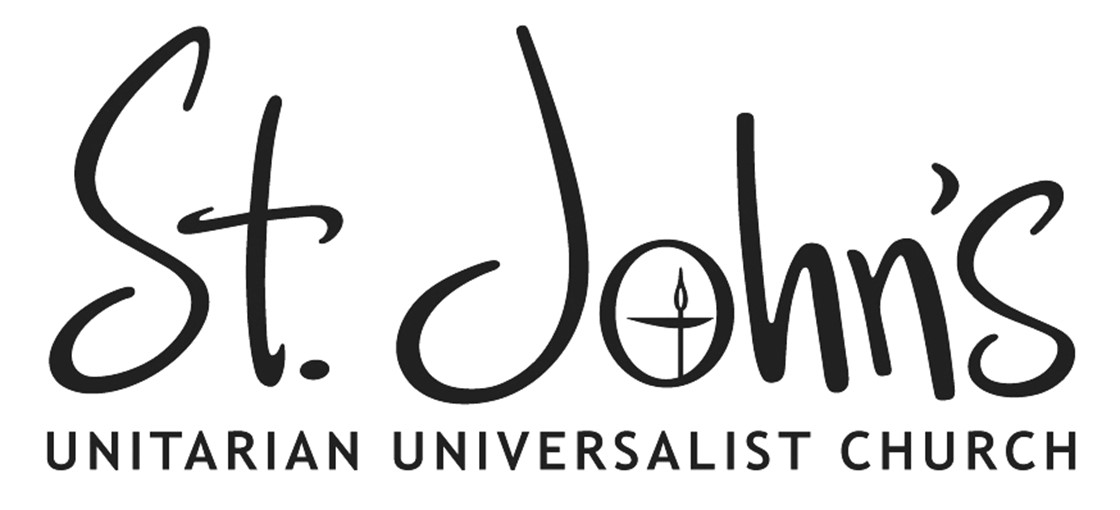Unitarian Universalists (UUs) often see themselves as the religion of reason – we study things, we use our minds and count on having good information to guide us. I know I value learning and knowledge! After all, I’m in school! UUs also often see ourselves as people of social justice and action. Some of us really dislike the time it takes us to make up our minds and take an important action on some injustice somewhere. “All talk and no action” is the other way we are described. But maybe there is some other way of looking at how we learn and act in the world.
You may have heard the word “praxis” around St. John’s for a while now. It is a way of putting what we know into practice by acting in the world, then spending time reflecting on our actions that then reshapes what we know. The term represents an ongoing process of deepening our understanding of the world and how we might be in it. But rather than learning by sitting in a classroom and soaking up information from the expert, in praxis, we bring our own life experiences to a conversation and we learn from each other. We deepen our understanding of what it means to be UU in a hurting world. We get better at acting with integrity to our faith because we are thinking about it. Here’s an example of what I mean.
St. Johnners who have been serving the Dohn School have been participating in reflective circles once a month to share with each other what they are learning and doing from their time at Dohn. At first, the concept of spending time in spiritual reflection was seen as a waste. “I already have my own practice.” Or “I don’t want to talk, I want to act!” People are busy! I can certainly understand the resistance to spending time sitting in a circle with a chalice lit and some good comforting words to kick-off the conversation! (UUs are also called the sandals and candles crowd.) And yet, this is church.
It made me wonder how it was going for the Dohn volunteers, so I asked a few. They have all said they have learned from each other in the conversations. The person who said, “I don’t want to talk” now doesn’t want to do without this reflective time. Having the deeper connections with each other is half the reward of volunteering, one person said. They have said they value the time to share and have people actually listen; “That doesn’t happen that often,” one person said. There is a growing recognition that people are not all in the same place but that we need to meet each otherwhere we are. And some change and growth is observable in others as well as in ourselves. The unconditional regard for one another is palpable – and if that isn’t UU, then I don’t know what is!
They have also learned how to work with the youth. The borders that St. Johnners are crossing are significant: differences in age, race, and class. And yet they have learned to relate to these young people. Stereotypes have broken down. The St. Johnners recognize that their role is not to “save” these young adults or “teach” them – the idea is to be there, in regular nonjudgmental contact, and the main role is to honor the students where they are. There’s that unconditional regard idea, again. One of the greatest rewards of being a Dohn volunteer is when a Dohn student remembers your name and is curious enough about you to ask you a question. Now there is a relationship developing. What learning do you think is going on?
What if more of our religious education – adult and youth – used a bit more praxis and a bit less feeding of content? What if the classroom was filled with learners and knowers – in the same body! Sophia Lyon Fahs was a groundbreaking religious educator in the early 20th century. The philosophy of education then – and maybe now – is that the mind of the child is an empty vessel to be filled. But Fahs saw children as gardens ready to grow, and the teacher’s job was to nurture that growth. We come to St. John’s already knowing stuff. How do we deepen our understanding of what it means to be UU?
As I prepare to leave St. John’s at the end of May to move into a new ministry, I hope this concept of praxis will begin to take root in other parts of our garden. When I began facilitating it, I was not certain of how it would work. I was unclear about what would happen. But the results have been rewarding. I have learned more about letting go because it is the people in the room with the wisdom to share that are making the difference in our understanding. My understanding is deeper, too. May we continue to grow in our faith throughout our lives.
In the spirit, Alice.
